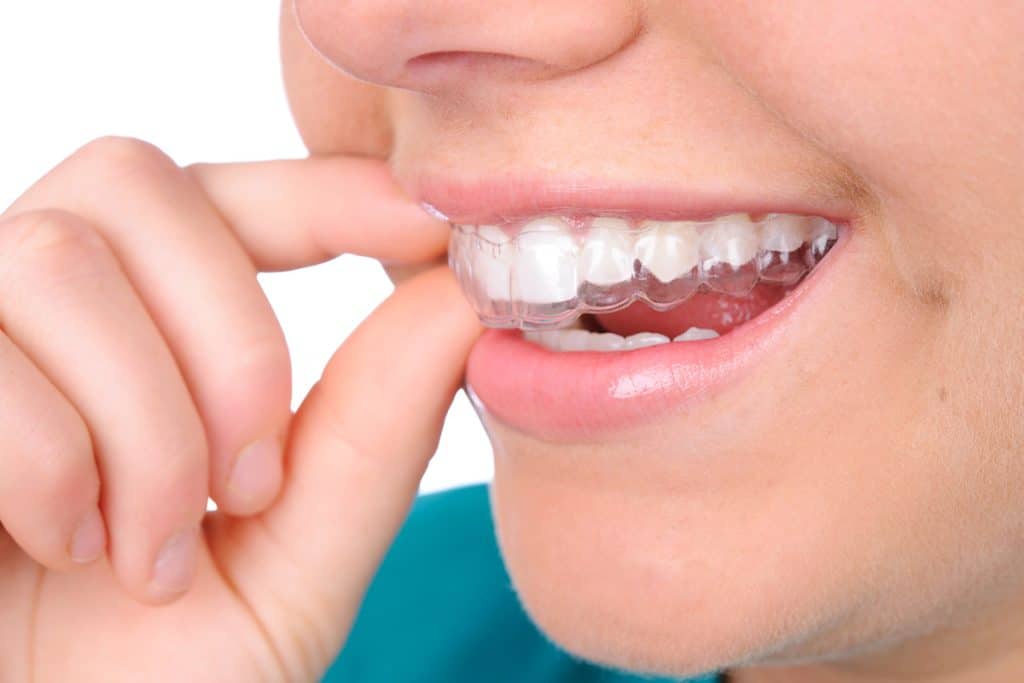Underbite Treatment with Invisalign: What to Expect

Invisalign® is an adaptable orthodontic appliance that can straighten teeth, remove gaps, and treat minor dental bite issues, including underbite.
In the case of underbite, Invisalign works best when the bite issue stems from tooth alignment. If jaw issues cause the underbite, you may need braces or surgery.
What is an Underbite?
Underbites happen when a patient's lower teeth sit forward of the upper teeth. Patients with an underbite often feel uncomfortable with their smiles. They may have trouble chewing or speaking. They may also have chronic bad breath.
Why Choose Invisalign for An Underbite?
Invisalign is an efficient way to treat underbites caused by malocclusion. When treating bite issues with Invisalign, dentists use composite attachment points or buttons that blend in with the teeth. The buttons hold strong elastic bands.
Dentists use these buttons to connect the top molars to the lower canines, allowing the bands to pull the teeth into more appropriate positions. As Invisalign treatment proceeds, the teeth return to better positions, and the underbite disappears.
How Invisalign Works
Invisalign treatment uses a series of custom, medical-grade plastic aligners. The dentist creates these aligners using 3-D digital technology to ensure proper tooth movements. After one to two weeks, you will change to a new set of aligners throughout the treatment period. The new aligners gently move your teeth, preparing them for their final locations.
Benefits of Invisalign
- Comfortable: Invisalign fits snugly against the teeth and has no irritating brackets or wires.
- Discreet: Even with the buttons and elastics required to treat an underbite, Invisalign is more discreet than braces and will attract fewer unwanted comments.
- Effective: Invisalign has been clinically shown to work as well as braces.
- Faster than braces: Where braces typically take from 18 months to 3 years, Invisalign treatment is shorter at 12 to 18 months.
- Improved oral health: Invisalign allows better oral care, significantly improving oral health outcomes. Invisalign can easily maintain gum health, which sometimes suffers with braces.
- No food restrictions: Invisalign patients can eat their favorite foods without worrying they will damage their aligners. Invisalign comes out for eating, drinking, and cleaning.
Frequently Asked Questions About Invisalign and Underbite
What causes underbite in children?
Tongue thrusting, thumb-sucking, and pacifier use can contribute to underbite in young children. Speak to your dentist about methods to gently correct these damaging habits that can have far-reaching effects on oral health later in life.
Do I need to wear a retainer after the Invisalign treatment?
Retainer use is crucial to maintaining the results of your Invisalign treatment. You will lose your financial and time investments without proper retainer wear and potentially see your underbite return.
Call Cambridge Family Dentistry
Invisalign is a comfortable, discreet option for treating minor to moderate bite issues. Only your dentist can tell you whether you are a candidate for treating underbite. Please call our Cambridge, MA, office at 617-868-7479 to schedule your consultation today.
